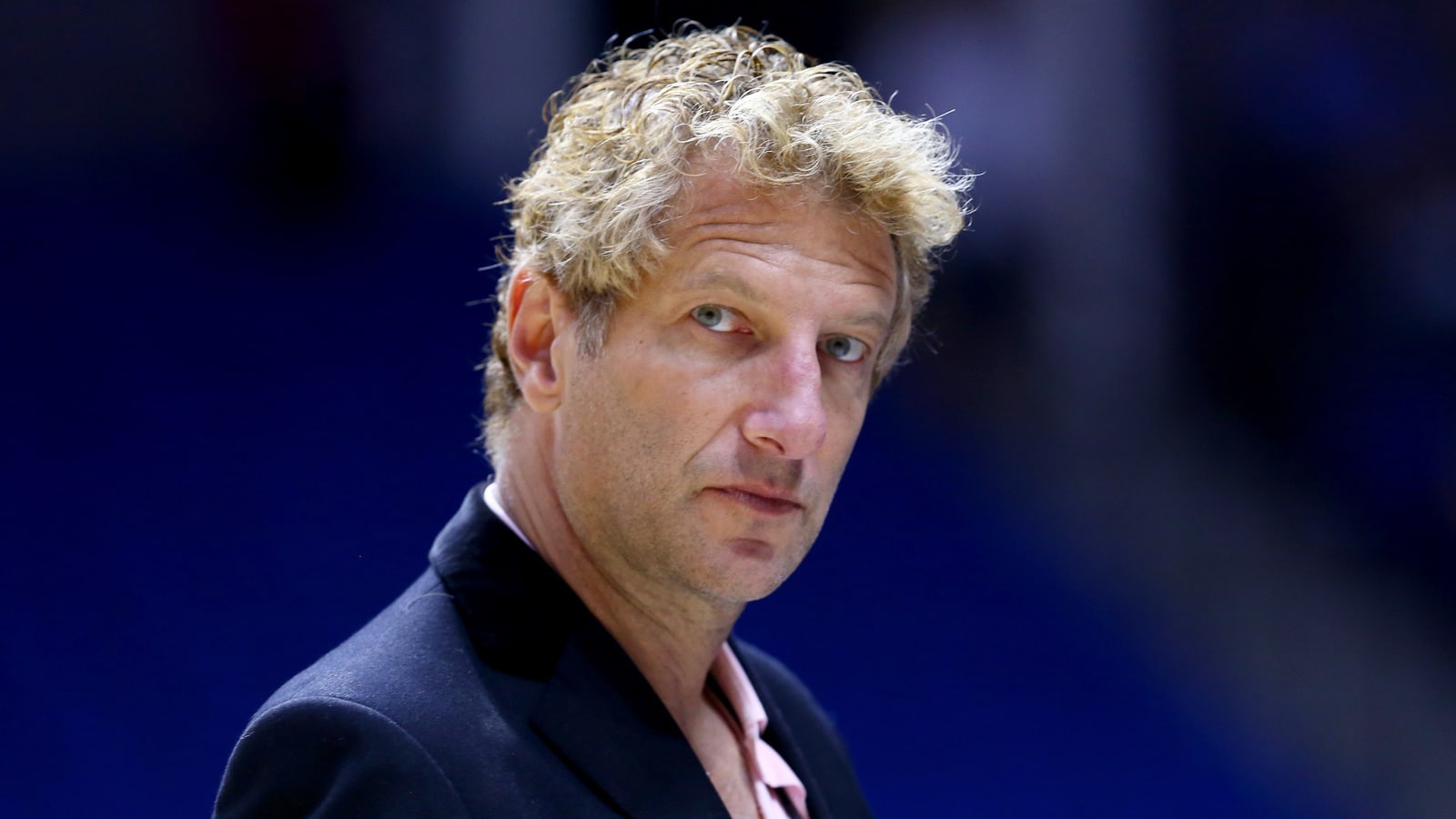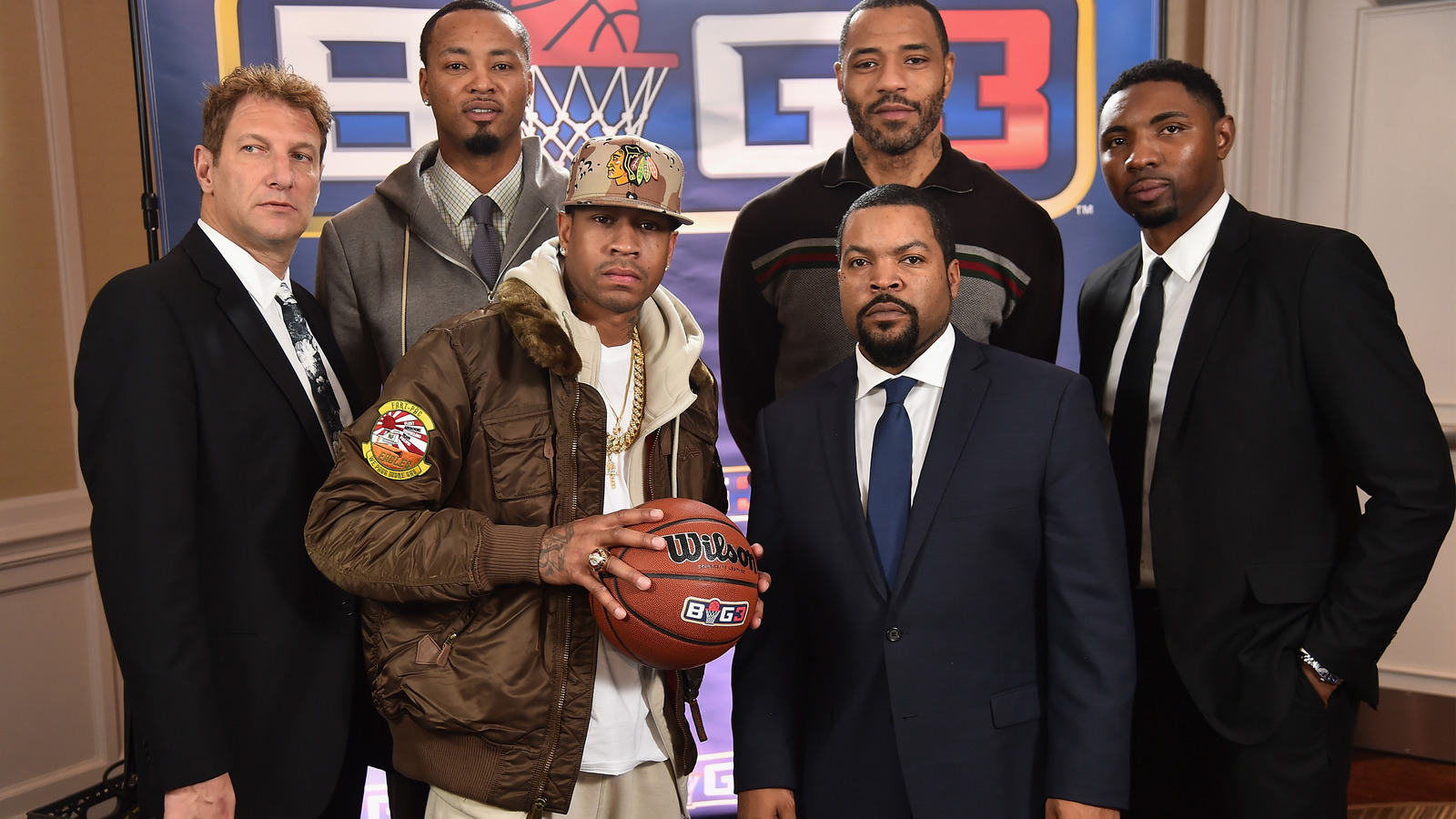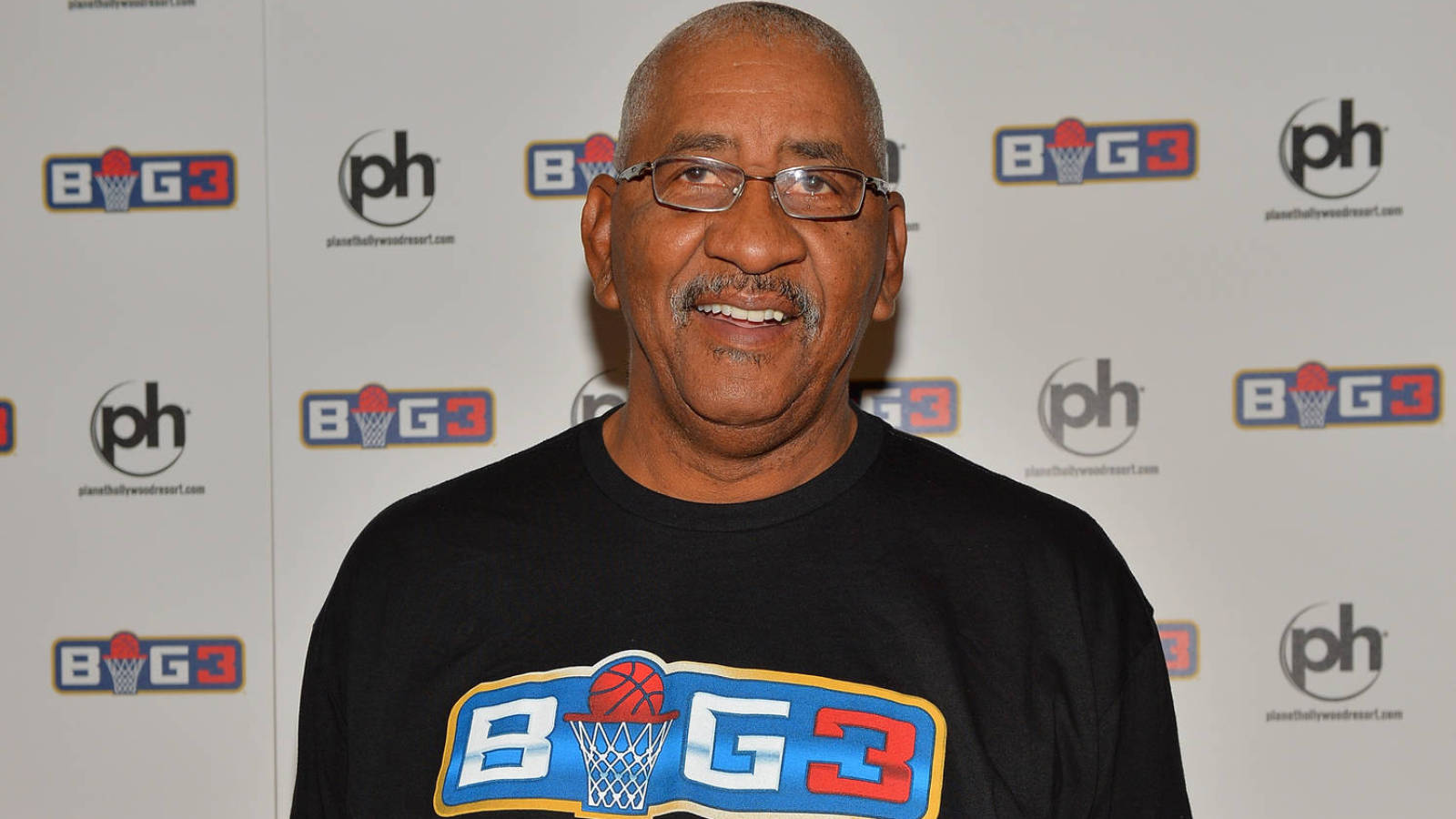
Preparing for the BIG3: Q&A with BIG3 co-founder Jeff Kwatinetz
Remember during the NBA player lockout in 2011 when Nike rolled out its "Basketball Never Stops" campaign? It may have been a way to soothe the angry masses who missed their pro hoops, but it was also a truism. Whether it’s at the nearest playground and recreational center for local tournaments or big arenas where big-time exhibitions and the WNBA bring the action, the summer isn’t exactly a quiet time for basketball.
The much-hyped BIG3 is the latest entrant into the summer hoops schedule, one with a different structure and a lot of star power behind it. A longtime dream from the mind of rap legend, actor and businessman Ice Cube, BIG3 debuts next month with no shortage of names revered by hoops fans.
Yardbarker spoke with one of the co-founders and Ice Cube’s longtime business partner, Jeff Kwatinetz, about the nascent league now that BIG3 draft is behind us. Kwatinetz shared his thoughts on BIG3’s first-year expectations, its place in the summer basketball landscape, the unique fan experience and its partnership with FOX Sports 1.
Yardbarker: Does BIG3 see itself as a competing alternative to what more established entities like the NBA (including Summer League, the D-League and the WNBA), the NCAA or even The Basketball Tournament offer?
Jeff Kwatinetz: We see it as its own thing, totally different. 3-on-3 basketball is still a form of basketball, but it is a different sport… different strategies, different skills. A lot of those other leagues are trying to do something to fill a gap when the NBA isn’t around, but the basketball is great in the NBA and we don’t want to compete with that. We want to create something that is big in its own right.
We were able to design something to take advantage of the skills that our guys have. The older you are, the smarter you are, basketball IQ-wise. So these guys know the game inside and out. What becomes hard is running up and down the court with college kids and 23-year-olds, but in terms of basketball IQ, our guys are way better than young guys. We maximized the things that these guys are really good at, and I think the result is the basketball is faster, more physical and super-exciting, great competition because it’s different.
YB: There’s something to be said about the generational split: older players having the savvy and smarts to compensate for what they may lack physically compared to their NBA primes while younger athletes may not have the mental game down yet. What’s been the response from the younger crowd?
JK: Younger players who are in the NBA now are just so excited to see it. A lot of those guys are playing 3-on-3 at their practices anyway. With 82 games in a season plus the playoffs, the coaches can’t always have full-court practices, so they run plays and do a lot of stuff in 3-on-3. So NBA players do use it to some extent. The irony is that the people who are more interested in our league are younger, that 18-35 crowd. They know that our guys aren’t that old; most of them are in their 30s. So if they were in the league a couple of years ago, someone who is 21, 22 years old was rooting for them back then.
The fans are playing 3-on-3 on the weekends with their friends in the schoolyards and on the basketball courts, so you get to see a sport that’s more in line with how most of them play it, with guys that they grew up with and loved watching.

YB: Looking at the rosters, you have former All-Stars and well-known players who carved some strong niches for themselves in the NBA. In this 3-on-3 format, what should fans expect to see from them at this stage of their basketball careers?
JK: Mentally they are in their prime. These guys like Chauncey Billups and Kenyon Martin, they’re smart, and they know so much about the game. People learn about the game strategically as they get older, so we’ve got them at the perfect time. They’re not old to the point where they can’t perform and they’ve lost their skills; they’re still incredible athletes. But the difference is that they get to play half court and run these strategies. There’s something to having only three guys. You can’t hide! You always have to be moving without the ball; it’s just very quick. They know how the game is played.
YB: One thing to note about the BIG3 that stands out is that the fan experience is almost like a festival. Between yourself and Ice Cube, what was the thought process behind putting together something like this for fans coming to the arenas?
JK: We’ve spent a good year working on different iterations of what we think this should be. Both Cube and I have created music festivals, have put on huge entertainment events. Our first priority was to make incredible basketball, but we just thought about what’s working out there. If you look at how music has become so much about festivals and seeing a variety of acts instead of just seeing one headline, we thought that having four games all at one time, because they’re shorter games, would be more exciting and you get to see everybody.
It’s not just the festival environment inside and outside the arena. It’s also about the players getting to see each other, too. There’s a camaraderie that these guys miss from when they were in the NBA. What you get to see is like the Final Four where they get to hang out together. Even though the competition might be fierce, they’re still having fun. When entertainers are having fun on stage, that’s what people enjoy the most. We wanted to create that; that’s what we’ve learned about entertainment and wanted to bring it to a super competitive game.
YB: What’s also fascinating about that in addition to legendary tough guys like Charles Oakley and Rick Mahorn, six Hall of Famers (Allen Iverson, Gary Payton, George Gervin, Julius Irving, Clyde Drexler and Rick Barry) are lending their names and experiences to the league. How did they decide to come aboard?
JK: I think they appreciated where we were coming from. It’s hard for these guys when they were athletes their whole lives and everything just stops. Unless they became announcers (after retirement), they weren’t really embraced in the sport that they helped build, and I think these guys saw what we were building. For us, it was important to include them because they made the game. What basketball is today is such a product of what guys like Dr. J and Barry did. Sure, they are in the Hall of Fame, but we wanted to acknowledge them. Also we wanted their ideas and knowledge.
I think everyone involved knows that we’re building something that will be good for players, hopefully for generations to come. We really want this to be an important part of their legacy. It’s important to Cube and I. There are easier ways for us to make money in the entertainment business, but we are passionate about sports — especially about basketball — and allowing great athletes to still be great athletes and do what they love doing is like bringing positivity to the world. It keeps basketball alive in the summer, and we’re coming at it from a good place.

YB: The passions are strong and the interest is quite high, but sports with this kind of stage are still run as businesses. As a new league that’s offering something different, where do you see BIG3 over the next few years?
JK: Honestly, it’s not a cop-out, but we’re just focused on making this year great and successful. We're getting a lot of milestones that no one ever thought we would. We have a great broadcast partner like FOX, who are giving us great crews and production, putting us in prime time. We’re in the top arenas and getting players in front of 15,000+ people each time. These are all great things that we’re pulling off, and we’ll see where it goes. 3-on-3 basketball is played everywhere in the world, and we’d like to do other things in other countries like doing an all-star game and putting on exhibitions.
If it does well enough, of course there’s always the ability to adding teams, but we don’t want to thin out the competition. It is a business, but Cube and I have learned over the long run that you are successful if you do things with authenticity and for the right reasons. It feels like we’ve designed this league with the right amount of teams and the right amount of games.
YB: About BIG3’s pay structure, all of the players share the team’s earnings equally, depending on where they are in the standings. Was it hard to have these players buy in to that, knowing that they’ve spent their careers in systems that rewarded individual contracts?
JK: It’s so different than the star-oriented system of most sports. It’s a credit to these guys, including the captains of their teams who are willing to help out their fellow players and willing to be in a league that is more based on camaraderie and competition than it was about individuals.
That was the biggest risk in how we formatted the league. The players that were drawn to it were not the guys who were greedy and just wanted a quick check. These were the guys that wanted to build something and wanted this to be part of their legacies. Sure these guys want to make money, but it wasn’t the motivating factor in participation. They’re all over the country talking about the league, and they don’t have to do that. They don’t have contractual obligations. We wanted to create an atmosphere where players and coaches wanted to do that, and that’s what’s happening. Kenyon Martin, Chauncey Billups, Rashard Lewis and Stephen Jackson are flying places to talk about the league and their fellow players, and they didn’t have to do it! They love the game, and they want this for themselves and their legacies. It’s really, really cool, and that’s why I think it’s going to win.
YB: Outside of the playoffs, games will be played on Sundays, but the broadcasts will be shown on Mondays. In an age of social media and fans used to watching while "second screening" at home on their phones and tablets, how does the delay help you produce the best television product?
JK: In the beginning, we get to have the best day for when fans want to see games in-person, which is on Sundays. We also get to have the best day in terms of television viewership, which is on Mondays. So for the first year, those will work together. In that one-day turnaround, we’ll be able to do things where we’ll have great angles for the best shot. You won’t miss anything because we’ll have the players and court mic’d up. We’ll be able to mix in the sounds with the players talking and get a much more insightful view of the game.
In sports, it takes a few years to build attachments to teams. Right now these are players where fans who live in all these different cities have an attachment to. Even if when (the game results) get out, what you don’t see is the competition and what’s going on the court, and I think that’s what people want to see in Year 1. Typically we would just be playing live and build up after a few years to get a TV deal. The only difference between that and what we get is that we get the ability to show people essentially a perfect broadcast of the games. We have the ability to do things with very unique angles and sounds, adding interviews that will make it more exciting. Remember, people watch the Olympics where everyone knows the results, but they still watch them.
More must-reads:
- Analyzing the BIG3 draft rosters: Who can win the championship?
- My big day at the BIG3 draft
- The 'NBA All-Time assists leaders' quiz
Breaking News
Customize Your Newsletter
 +
+
Get the latest news and rumors, customized to your favorite sports and teams. Emailed daily. Always free!


